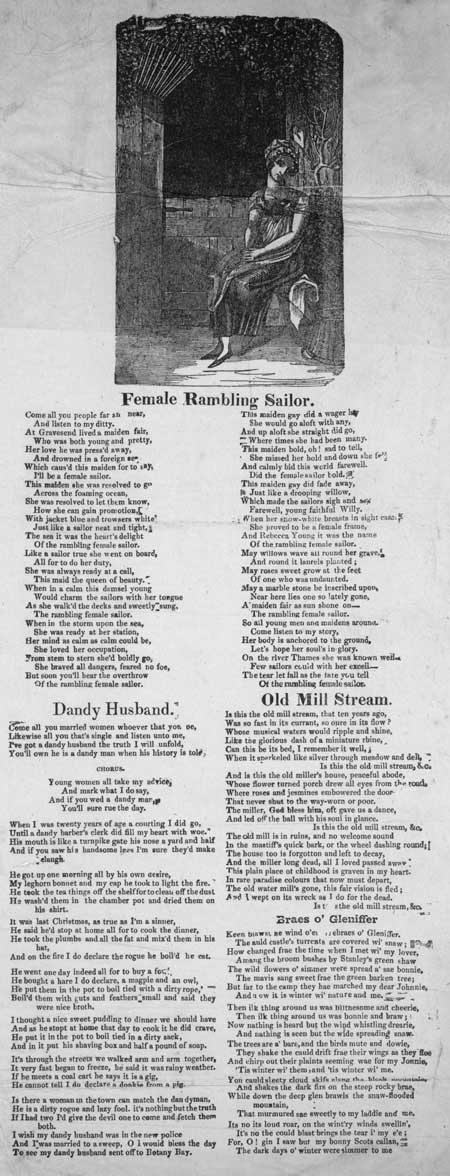Commentary
The first ballad begins: 'Come all you people far an near, / And listen to my ditty'. The second ballad begins: 'Come all you married women whoever that you be, / Likewise all you that's single and listen unto me'. The third ballad begins: 'Is this the old mill stream, that ten years ago, / Was so fast in its currant, so pure in its flow?' The fourth ballad begins: 'Keen blaws [t]he wind o'e[r th]e braes o' Gleniffer, / The auld castle's turrets are covered wi' snaw'. The four songs printed on this broadside are quite different in theme. 'Female Rambling Sailor' takes up an idea that features in other broadside ballads, the vow of a woman to join the armed forces after her lover has been lost in action. 'Dandy Husband' is a comic poem narrated by a woman verbally attacking her husband. 'Old Mill Stream' laments the decay of favorite childhood place, whilst 'Braes o' Gleniffer' is a well known song by the accomplished Paisley poet Robert Tannahill (1774-1810). Early ballads were dramatic or humorous narrative songs derived from folk culture that predated printing. Originally perpetuated by word of mouth, many ballads survive because they were recorded on broadsides. Musical notation was rarely printed, as tunes were usually established favourites. The term 'ballad' eventually applied more broadly to any kind of topical or popular verse.
View Transcription | Download PDF Facsimile
|
 |
Probable period of publication:
1860-1880 shelfmark: L.C.Fol.70(147)
 View larger image
View larger image
|


